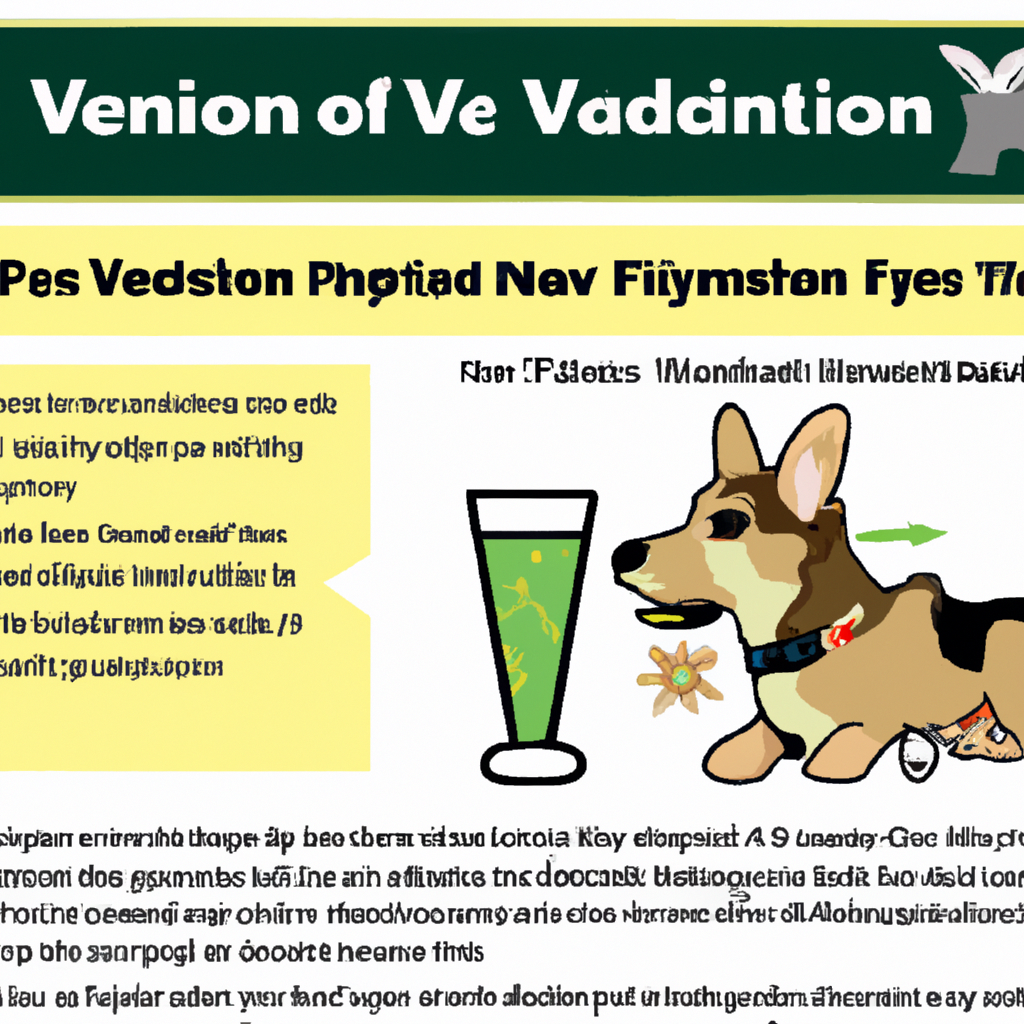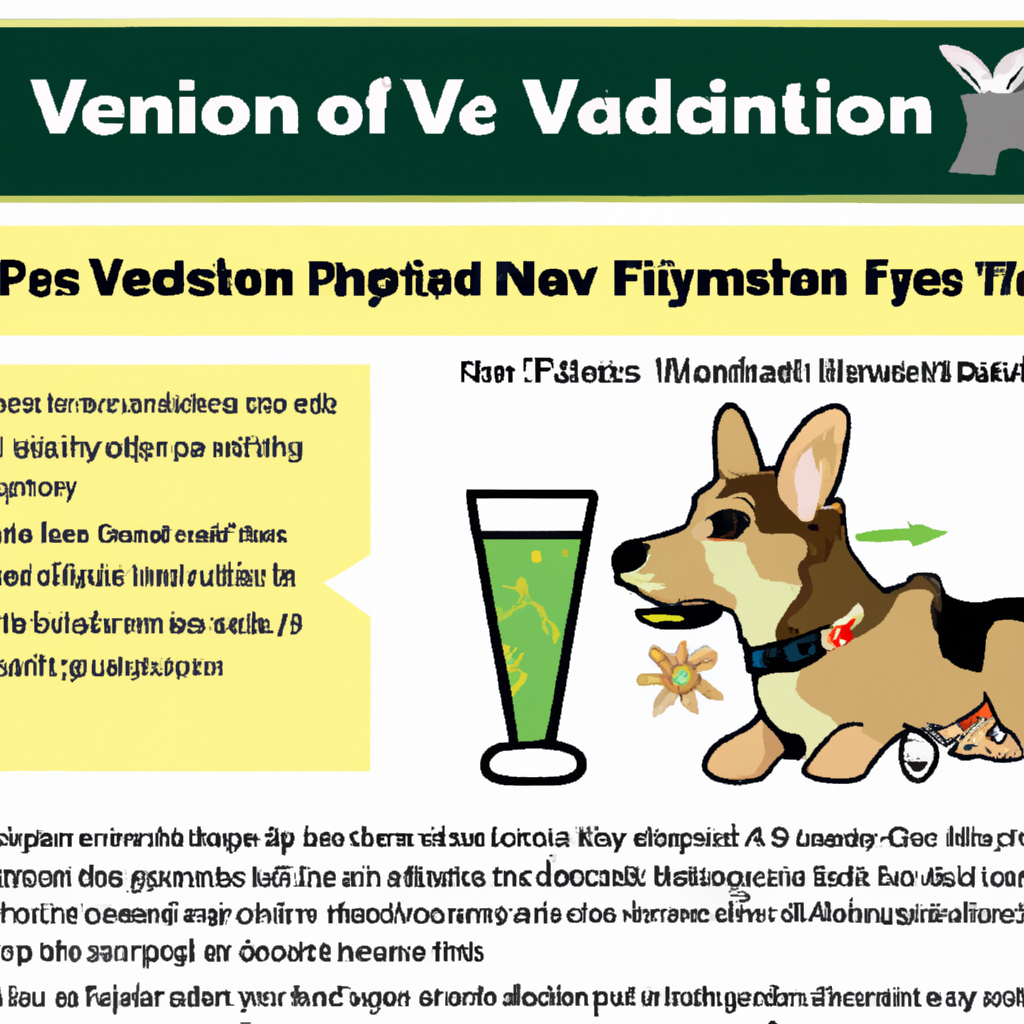Are you an avid pet owner who loves taking your furry friend everywhere with you, even to restaurants? If so, you might be wondering if pet-friendly establishments have certain requirements for your pet’s health. Specifically, do these restaurants require pets to be vaccinated? This article explores this common query and sheds light on the policies and considerations surrounding pets and their vaccinations in pet-friendly restaurants. So, sit back, relax, and let’s uncover the truth behind this important question.

This image is property of images.unsplash.com.
What are pet friendly restaurants?
Pet friendly restaurants are establishments that welcome pets, typically dogs, to accompany their owners while dining. These restaurants provide an inclusive environment for pet owners who want to enjoy a meal without leaving their furry friends at home. In recent years, the concept of pet friendly restaurants has gained popularity, creating a unique dining experience for both humans and their beloved pets.
Definition of pet friendly restaurants
Pet friendly restaurants are defined as establishments that allow well-behaved pets to accompany their owners. While the specific policies may vary, these restaurants generally have designated areas where pets are allowed, such as outdoor patios or specific sections within the premises. This allows pet owners to enjoy a meal while ensuring the comfort and safety of all patrons, pets, and staff.
Growing trend of pet friendly restaurants
Over the years, there has been a significant surge in the number of pet friendly restaurants. This growing trend can be attributed to the increasing number of pet owners who view their pets as integral members of their families and seek ways to include them in various aspects of their lives. Pet friendly restaurants not only provide a solution for pet owners who struggle to find pet care or prefer not to leave their pets alone at home, but they also offer a unique selling point for businesses to attract customers in a competitive market.
Importance of pet vaccinations
Pet vaccinations play a crucial role in maintaining the health and well-being of both pets and the community at large. These vaccines are designed to protect pets from various contagious diseases and prevent the transmission of potentially harmful pathogens to other animals or humans. Ensuring that pets are properly vaccinated is not only essential for their own health but also for the overall safety of the environment they inhabit, including pet friendly restaurants.
Benefits of pet vaccinations
Pet vaccinations offer a range of benefits to both the individual pet and the community. Firstly, they provide immunity against infectious diseases, reducing the risk of pets falling ill and experiencing severe health complications. Vaccinations can also help prevent the spread of diseases within the pet population, ultimately reducing the likelihood of outbreaks. Additionally, some vaccines can protect against zoonotic diseases, which are infections that can be transmitted between animals and humans, further safeguarding public health.
Prevents transmission of diseases
One of the primary reasons why pet vaccinations are crucial in pet friendly restaurants is their ability to prevent the transmission of diseases. Unvaccinated pets can act as carriers of various contagious diseases, putting other animals and humans at risk of infection. By requiring pets to be vaccinated, pet friendly restaurants can significantly reduce the chances of disease spread within their premises and create a safer environment for everyone.
Required by law in many jurisdictions
In many jurisdictions, pet vaccinations are legally required for various reasons, including public health and animal welfare. These laws mandate that pets receive certain vaccinations and maintain up-to-date vaccination records. Pet friendly restaurants must adhere to these regulations to ensure compliance with the law and safeguard the well-being of their patrons, pets, and staff. Failure to do so can result in penalties and legal consequences that can have a detrimental impact on the business.
Government regulations on pet vaccinations
Laws regarding pet vaccinations vary from one jurisdiction to another. While the overarching goal is to protect public health and animal welfare, the specific requirements and regulations can differ significantly. Some jurisdictions may have strict vaccination mandates, requiring pets to be up-to-date on all core vaccines, while others may have more lenient regulations. Understanding and complying with these regulations is essential for pet friendly restaurants to operate legally and responsibly.
Variations in vaccination requirements
The variation in vaccination requirements can be attributed to factors such as regional disease prevalence, local government policies, and scientific recommendations. For example, areas with a high incidence of a particular disease may enforce stricter vaccination requirements to control its spread. Similarly, municipalities may tailor their regulations based on the prevailing health concerns of their communities. Pet friendly restaurants must familiarize themselves with the specific vaccination requirements applicable to their location to develop appropriate policies.
How regulations differ for pet friendly restaurants
Regulations regarding pet vaccinations may differ for pet friendly restaurants compared to other establishments. In some cases, pet friendly restaurants may be subject to additional scrutiny and stringent vaccination requirements due to the potential for increased exposure to other animals and humans. These establishments may be required to go beyond the minimum legal requirements to ensure the health and safety of everyone present. It is essential for pet friendly restaurants to stay informed about any specific regulations that apply to their unique circumstances.

This image is property of images.unsplash.com.
Establishment policies on pet vaccinations
Different pet friendly restaurants may have varying policies regarding pet vaccinations. While the ultimate goal is to create a safe and inclusive environment, the specific requirements and exceptions can differ. Some establishments may mandate that pets must be fully vaccinated against all core diseases, while others may accept a subset of vaccinations. To develop these policies, pet friendly restaurants take into account various factors, including local regulations, disease prevalence, and the specific needs and preferences of their patrons.
Factors influencing policies
When establishing policies on pet vaccinations, pet friendly restaurants consider several factors. These include the prevalence of specific diseases in the area, the level of exposure to other animals and humans, and the size and layout of the establishment. Additionally, customer feedback and preferences may also play a role in shaping these policies. Balancing the need for safety with the desire to accommodate a wide range of pet owners is crucial in creating effective and fair vaccination requirements.
Exceptions and considerations
Despite having general policies on pet vaccinations, pet friendly restaurants may also make exceptions or considerations on a case-by-case basis. Some establishments may allow for medical exemptions, where pets can be permitted without certain vaccinations due to health conditions or allergies. Accommodations may also be made for young puppies or newly adopted pets who are in the process of completing their vaccination schedule. However, it is essential for pet owners to communicate openly with the restaurant staff and follow any specific guidelines or requirements that may be in place.
Health risks for unvaccinated pets
Unvaccinated pets pose several health risks, both for themselves and for others in pet friendly restaurants. These risks stem from the potential transmission of diseases that the pets may carry. Without the protection provided by vaccinations, pets are more susceptible to contracting and spreading infectious diseases, some of which can have severe consequences on their health and well-being.
Diseases that can be transmitted
There are various diseases that unvaccinated pets can potentially transmit to other animals and humans. Examples include rabies, parvovirus, leptospirosis, distemper, and kennel cough. These diseases can cause severe illness and, in some cases, have fatal outcomes. Rabies, in particular, is a highly dangerous disease that can be transmitted to humans through bites or scratches from infected animals. By ensuring that pets are properly vaccinated, pet friendly restaurants can minimize the risk of disease transmission and create a safer environment for all.

This image is property of images.unsplash.com.
Potential harm to other animals and humans
Unvaccinated pets in pet friendly restaurants can pose a significant risk to other animals and humans present. If an unvaccinated pet is carrying a contagious disease, it can easily spread to other pets within close proximity. Additionally, humans who come into contact with an infected pet may also be at risk of contracting the disease. This risk is especially heightened in confined spaces, such as indoor seating areas, where the potential for disease transmission is greater. By implementing vaccination requirements, pet friendly restaurants can help prevent such harm and protect the well-being of all individuals involved.
Consequences for pet friendly restaurants
Pet friendly restaurants that allow unvaccinated pets to enter their premises may face severe consequences. In addition to the potential harm caused to other animals and humans, these establishments may face legal repercussions, negative publicity, and damage to their reputation. A disease outbreak traced back to a specific pet friendly restaurant can result in closures, fines, and even lawsuits. Furthermore, customers may lose trust in the establishment’s commitment to safety, thereby affecting its overall success and sustainability.
Benefits of allowing only vaccinated pets
Enforcing a policy that allows only vaccinated pets in pet friendly restaurants offers a range of benefits for all parties involved.
Ensures a safe environment
By allowing only vaccinated pets, pet friendly restaurants create a safer environment for all patrons, including pets themselves. Vaccinated pets are less likely to carry and transmit contagious diseases, reducing the risk of infection for both animals and humans. This not only protects the health and well-being of the visitors but also helps maintain a positive and enjoyable dining experience.
Peace of mind for patrons and staff
Requiring pet vaccinations provides peace of mind to both patrons and staff at pet friendly restaurants. Knowing that all pets in the establishment are properly vaccinated alleviates concerns about potential disease transmission. It instills confidence in the restaurant’s commitment to maintaining a hygienic and safe environment, fostering a positive dining experience for everyone involved.

Builds trust and reputation
Enforcing vaccination requirements builds trust and enhances the reputation of pet friendly restaurants. By prioritizing the safety and well-being of patrons and their pets, these establishments differentiate themselves from those that do not have such thorough policies in place. Pet owners are more likely to choose restaurants that prioritize health and safety, leading to increased patronage and positive word-of-mouth recommendations.
Enforcement of vaccination requirements
To ensure compliance with vaccination requirements, pet friendly restaurants need to implement effective enforcement strategies. These strategies typically involve checking vaccination records, applying penalties for non-compliance, and cooperation with local authorities.
Checking vaccination records
Pet friendly restaurants may request proof of vaccination from pet owners before allowing their pets to enter the premises. This can be done by asking for vaccination certificates or records that indicate the pet’s up-to-date vaccinations. Staff members must be trained to review the records and verify their validity, ensuring compliance with the establishment’s vaccination policy.
Penalties for non-compliance
In cases where pet owners are unable to provide proof of vaccination or do not comply with the establishment’s vaccination requirements, penalties may be applied. These penalties can range from denial of entry to fines or even being asked to leave the premises. Clearly communicating these penalties to pet owners before they arrive can help set expectations and encourage compliance.
Cooperation with local authorities
Pet friendly restaurants should also cooperate with local authorities to ensure compliance with government regulations. This may involve periodic inspections or reporting of any incidents related to unvaccinated pets. By maintaining a collaborative relationship with local authorities, pet friendly restaurants not only demonstrate their commitment to public safety but also minimize the risk of legal consequences.

Alternatives for non-vaccinated pets
While vaccination requirements are crucial, establishments may also consider providing alternatives for non-vaccinated pets to enable pet owners to still enjoy their dining experience.
Designated non-pet areas
Establishing designated non-pet areas within the restaurant can accommodate both pet owners and those who prefer not to be in close proximity to animals. By physically separating areas where pets are allowed and restricting them from certain sections of the establishment, pet friendly restaurants can ensure the comfort and safety of all patrons.
Outdoor seating options
Providing outdoor seating options can be an effective alternative for non-vaccinated pets. Outdoor spaces offer more ventilation and room for pets to accompany their owners without exposing other patrons to potential health risks. This allows pet owners to still enjoy their meal while minimizing the risk of disease transmission.
Specific rules and restrictions
Pet friendly restaurants can also implement specific rules and restrictions for non-vaccinated pets. For example, they may require non-vaccinated pets to be kept in carriers or on leashes at all times, minimizing the chances of direct contact with other animals or humans. These rules and restrictions can help mitigate potential health risks while still allowing pet owners to dine with their furry companions.
Customers’ role in ensuring vaccination compliance
While pet friendly restaurants play a vital role in enforcing vaccination requirements, pet owners themselves have a responsibility to ensure compliance and promote the health and safety of everyone involved.
Responsibility of pet owners
Pet owners should ensure that their pets are properly vaccinated before visiting a pet friendly restaurant. This includes keeping up with recommended vaccination schedules and maintaining accurate records of vaccinations. Additionally, pet owners should communicate openly with staff members if their pet has any medical conditions or exceptions to the standard vaccination requirements.
Cooperation with restaurant policies
Pet owners must cooperate with the vaccination policies set by pet friendly restaurants and provide required proof of vaccinations when requested. This collaboration helps create a safe environment for all, preventing potential disease transmission. Furthermore, adhering to these policies demonstrates respect for the establishment’s efforts to maintain public health standards and ensures a positive experience for everyone involved.
Respecting the health and safety of others
Respecting the health and safety of others is paramount in pet friendly restaurants. Pet owners should ensure that their pets are well-behaved and pose no risk or discomfort to other patrons. This includes proper leash control, responsible waste management, and adherence to any additional guidelines provided by the restaurant. By being considerate and aware of the impact their pets may have on others, pet owners can contribute to a harmonious and enjoyable dining experience for all.
Exploring pet friendly restaurant directories
For pet owners looking for pet friendly restaurants, several online resources provide directories that list establishments welcoming pets. These directories help filter options based on specific requirements, including vaccination policies, to ensure a seamless dining experience.
Online resources for pet friendly establishments
Various online resources provide comprehensive lists of pet friendly restaurants in specific regions. Websites and mobile applications cater specifically to pet owners, enabling them to search for establishments that meet their criteria. These resources often include information on vaccination policies, allowing pet owners to choose restaurants that align with their preferences and requirements.
Filtering options for vaccinated pets
Pet friendly restaurant directories often offer filtering options that allow pet owners to search specifically for establishments that require pet vaccinations. This feature ensures that pet owners can easily identify restaurants adhering to strict vaccination policies and prioritize their selection accordingly. By utilizing these filtering options, pet owners can save time and make informed decisions about where to dine with their pets.
User reviews and experiences
Pet friendly restaurant directories may also include user reviews and personal experiences, providing valuable insights into the dining experiences of other pet owners. These reviews can help pet owners assess the overall quality of the establishment, including factors such as vaccination compliance, pet-friendly amenities, and the overall atmosphere. By considering these reviews, pet owners can make well-informed decisions and select pet friendly restaurants that best suit their needs and preferences.
In conclusion, pet friendly restaurants play a crucial role in providing an inclusive dining experience for pet owners. Vaccination requirements are instrumental in maintaining a safe environment for all patrons, pets, and staff. By adhering to government regulations, implementing effective enforcement strategies, and promoting responsible pet ownership, pet friendly restaurants can ensure the health and well-being of everyone involved. Pet owners, on their part, should prioritize vaccinations, respect the policies of these establishments, and contribute to a positive dining experience for all. Through effective collaboration, pet friendly restaurants and pet owners can create a harmonious and enjoyable environment where pets and their owners can dine together.


